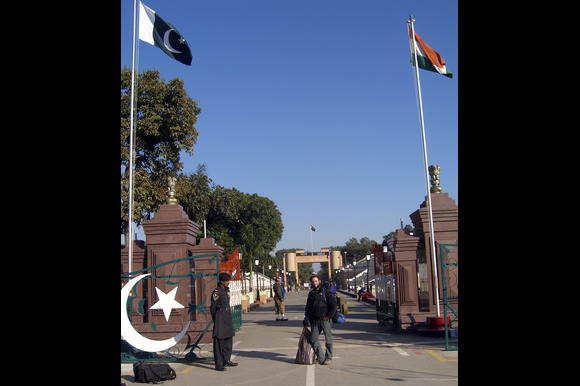Pakistan has implemented reciprocal actions against India, in response to escalating tensions following a militant attack in Indian-administered Kashmir that resulted in the deaths of 26 tourists. Islamabad has immediately suspended all visas granted to Indian citizens under an exemption scheme, expelled several diplomats from India, and closed its airspace to Indian flights. Indian authorities have identified three of the four suspected assailants involved in the attack, asserting that two are Pakistani nationals and one is a local Kashmiri individual. Pakistan has refuted India’s allegations of its involvement in the incident.
The attack occurred on Tuesday when armed assailants targeted tourists near Pahalgam, a resort located in the contested Himalayan region. Police in Indian-administered Kashmir have stated that the three identified suspects are affiliated with the Pakistan-based militant organization Lashkar-e-Taiba (LeT), although none of the individuals have responded to the accusations. A statement from Pakistan’s National Security Committee dismissed efforts to associate the Pahalgam attack with Pakistan, asserting that there has been no credible investigation or substantiated evidence.
Earlier, Prime Minister Narendra Modi declared that India would identify, track, and punish every terrorist and their supporters, vowing to pursue them relentlessly. He emphasized that the perpetrators of the killings, along with their backers, would face consequences beyond their imagination, stating, ‘Our enemies have dared to attack the country’s soul… India’s spirit will never be broken by terrorism.’ On Wednesday evening, Delhi announced a series of diplomatic actions against Islamabad in response to the killings in Kashmir, including the immediate closure of the Attari-Wagah border and the cancellation of visa services for Pakistani nationals.
In its official statement, Pakistan firmly rejected India’s suspension of the Indus Water Treaty, a longstanding agreement on water sharing that has been in place for over sixty years. The country emphasized that any efforts to halt or redirect the water flow would be regarded as an Act of War. Furthermore, Pakistan has closed its airspace to all airlines owned or operated by India and has suspended all trade relations with the nation.
Additionally, the number of diplomats at the Indian High Commission in Islamabad has been reduced to thirty, and Indian defense, naval, and air advisors have been instructed to depart from Pakistan by April 30. Following a recent attack, there are concerns regarding potential military escalation between India and Pakistan. The main border crossing with Pakistan has been closed by India in response to the incident, which has caused widespread anger and despair.
Approximately 1,500 individuals in Kashmir have been detained for questioning related to the attack, according to police sources reported by BBC News. After a period of shutdown, schools, businesses, and shops in the region are beginning to reopen. The police have announced a reward of 2 million rupees (approximately $23,000 or £17,600) for information leading to the identification of the attackers. The assault, one of the deadliest in recent years, resulted in the deaths of visitors from various Indian states, including an Indian naval officer on his honeymoon, a tourist guide who was the primary provider for his family, and a businessman vacationing with his wife and children.
An all-party meeting in Jammu and Kashmir expressed profound shock and sorrow over what they termed a ‘barbaric attack.’ As the bodies of the victims return to their home states across India, families and loved ones are holding emotional farewells. Meanwhile, reports indicate that Kashmiri students are experiencing harassment in various parts of India following the attack, with a spokesperson for Chief Minister Omar Abdullah’s National Conference party noting that several videos depicting such harassment in colleges and other locations are circulating online.






